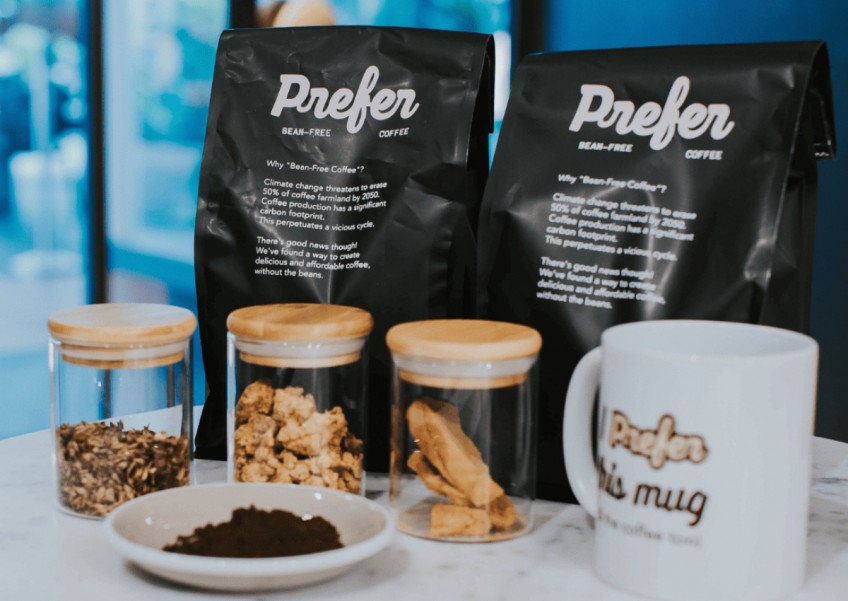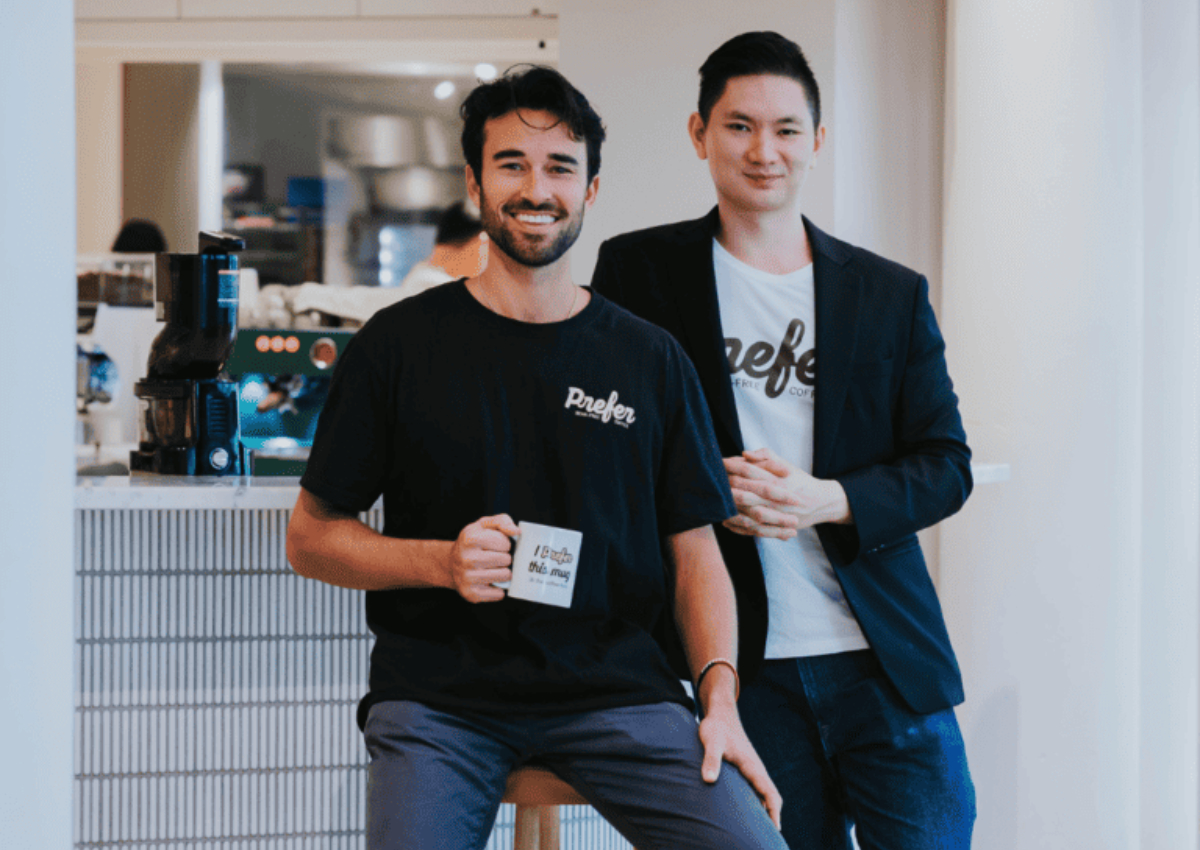Meet Prefer coffee: Brewing a bean-free revolution for a greener cup

In an era where coffee appears to be in inexhaustible supply, two innovative food-tech entrepreneurs have joined forces to launch Prefer, a pioneering bean-free startup poised to tackle the sustainability challenges inherent in conventional coffee bean farming.
Utilising advanced fermentation technology, Prefer skilfully transforms food by-products into delicious and environmentally friendly coffee alternatives. Making its debut in Singapore and across Asia, Prefer stands as a blend of ingenuity and ethical responsibility, set to redefine our coffee consumption experience with a sustainable twist.
Join us in exploring this exciting intersection of innovation and environmental stewardship, as we reimagine the future of our beloved coffee ritual!

Founded in late 2022, Prefer emerged from the collaboration between food scientist Tan Ding Jie and former neuroscientist Jake Berber. The duo, who initially connected at an Entrepreneur First program, shared a common goal of developing sustainable food solutions.
Capitalising on Ding Jie’s expertise in food innovation and Jake’s background in the investment sector, they honed in on fermentation biotechnology as their primary focus.
Opting to create a sustainable coffee variant, they were motivated by the burgeoning coffee consumption in nearby countries and the substantial carbon footprint associated with coffee production.
With projections suggesting a notable decrease in arable land for coffee cultivation by 2050 due to climate change, potentially causing supply disruptions and a surge in demand, Prefer aims to address these issues head-on. Their goal is to provide cost-effective, sustainable, and personalised bean-free coffee options.
After a year of focused product development, backed by notable organisations such as Entrepreneur First, A*STAR, and Enterprise Singapore, Prefer is excited to present this innovative bean-free venture to consumers!
So how exactly is bean-free coffee made? In their quest for sustainable coffee solutions, Prefer stumbled upon a groundbreaking revelation during their research journey — the intriguing similarity in flavour molecules between coffee and unexpected candidates like bread, soy, and barley.
Knowing that traditional raw ingredient procurement could further increase operational costs and carbon emissions, Prefer took an innovative approach by up-cycling food manufacturing by-products from local companies. These sources include day-old bread from Gardenia, soybean pulp from the renowned Mr Bean franchise, and spent barley grains from local breweries like The 1925 Brewing Co. and Brewerkz.

Once these unconventional ingredients are collected, Prefer follows a meticulous process to transform them into a unique coffee variant. Blended in a secret ratio, the mixture then undergoes fermentation, followed by roasting in an oven to unlock aromatic depths and distinctive flavours.
Afterwards, it's ground to the preferred fineness, this entire process unfolds in a mere 48 hours, a stark contrast to the prolonged timelines associated with traditional coffee production.
While Prefer's coffee grounds are proudly caffeine-free, the beauty lies in the flexibility to infuse caffeine derived from tea, allowing you to tailor your coffee experience.
The fermentation process also opens doors for Prefer to craft flavours reminiscent of coffee profiles from distant lands like Ethiopia and Colombia, all within the confines of the same facility. This not only eliminates import mark-ups when we purchase their products, but also positions Prefer to maintain low costs for businesses, making sustainable and flavourful coffee accessible to us all.
Now that we've delved into the essentials of Prefer coffee, let's explore how to elevate your coffee experience. Prefer's versatile bean-free coffee can be ground to various consistencies, catering to a spectrum of brewing methods, from fine espresso to medium-coarse drip brewing. The coffee's aroma tantalises with malty and nutty notes reminiscent of dark roasted beans, captivating coffee enthusiasts from the very first whiff.

Prefer's current iteration shines brightest as a cappuccino or latte — enjoyed with either traditional dairy or plant-based milk — with flavour profiles presenting a delightful marriage of cereal and hazelnut. This is accompanied by an earthy bitterness and subtle acidity, meticulously calibrated to mirror the nuances of traditional coffee.
The extraction process, seamlessly integrated into coffee machine brewing, demands no extra steps and maintains the same brewing time as traditional coffee. Baristas and coffee aficionados will particularly value the presence of crema, affording the opportunity for creating intricate latte art.
Furthermore, the extracted coffee seamlessly lends itself to classic coffee-based cocktails, including the beloved Espresso Martini.
If you're eager to enjoy Prefer Coffee on the go, you can indulge at various cafes, including Dough, Brash Boys, First Story Cafe, Foreword Coffee Roasters, and Parched by Parchmen, among others!
So, what's next for Prefer following the debut of their innovative coffee? Looking beyond the world of coffee, the duo harbours aspirations to tackle other crops threatened by climate change, including cacao, vanilla, and citrus.
Their vision involves leveraging fermentation technology to create alternative sources for flavours, bypassing the need for traditional harvesting methods. Ding Jie caps it off with this vision:
Prefer is available across multiple locations island-wide. For more information, please visit their website.
ALSO READ: Savour flame-kissed Asian fusion at Tribal, Mondrian Singapore Duxton
This article was first published in City Nomads.